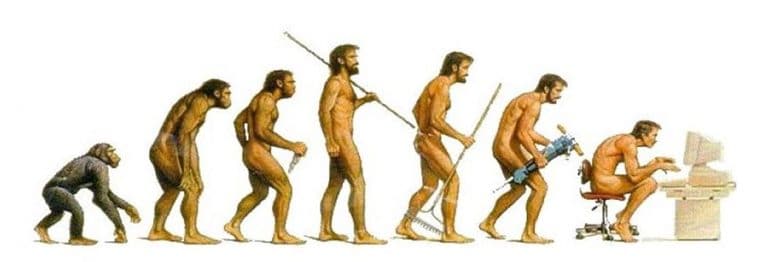Safety Legislation Is Our Biggest Accident?
Ken Roberts
www.1on1safety.com
I mentioned in an earlier article I’d explore the Legislator’s role in contemporary workplace safety. Being one for strategy and vision-setting, I searched for an underlying principle that our current safety Legislation might be based on. To my dismay I discovered that one single idea was developed over all others, and that it has not changed in over 40 years.
“All Incidents and Accidents Are Preventable”
It’s upon this single bold proposition that contemporary HSE legislation was created and has never been challenged or discussed since its inception. Hence all punishment dispensed by the authorities are predicated on the idea that you are breaking the law, in some form or another, if an accident occurs in your workplace.
I’ve come to realise that this single misnomer may well be the most damaging conjecture to have ever made its way into workplace psychology. With the repercussions so pervasive that it will take decades to unravel the damage. This is of course when we (society) finally admit that in fact we all knew this theory was BS before we bought it. I think our biggest regret will be when we acknowledge that we failed to challenge this floored supposition before it became legislation.
The Final Frontier
Space ain’t man’s final frontier. Man’s final frontier is the soul. – Arrested Development (Lyrics)
As we explore human behaviour and psychology further as a human race, perhaps to the same degree we’ve explored science and technology, it may soon be discovered that the herding instinct in man is responsible for why we blindly accept dogma and clearly flawed theories. Especially when it’s handed down by authority. A simple reality check of actuality, known events, examples of proven historical data and basic life experiences would have snuffed out this evil claim before it became lore (& law).
We are all aware of the unknown and unpredictable events related to weather, physics, astrophysics, energy, scientific phenomena and many other proven occurrences that we simply cannot foresee or prevent – or even prepare for. These are plainly evident in everyday experiences. In this regard for instance, it’s possible that a meteor could land on my roof. But I’m not preparing for it, are you? Not as I would say… stormy conditions. And thus, quantifiable risk measurement is born.
But what about the well-known and accepted fact that there is an inherent fallibility in all species. If there were not, then all species would be perfect. In this sense the word perfect means without flaw or defect. Species would not have any reason to develop or evolve if they were perfect. Possibly becoming extinct in the process. Professor Richard Dawkins, author of ‘The Selfish Gene’ said that anything which does not evolve must make way for something that does.
Our observation of life on earth reveals that all species evolve to a higher level by identifying their imperfections and making adjustments once they are revealed. Evolution is the result of millions of failed experiments and mistakes at atomic and cellular levels.
Preaching the Gospel
So that is the case for evolution based on physical geniality, what about those well versed in the field of human development and human potential? They are perfectly in sync with the idea that all natural (and synthesised) intellectual development also occurs through trial and error. These people are in fact free of limiting beliefs that human frailty is a bad thing. They promote the concept that we learn from our mistakes. Yes, Grandma was right all along.
Even from a creationists point of view the Bible is riddled with examples of God’s mistakes. Take the great flood for example. According to the Bible it occurred because every person in the whole world (except eight people God chose) was wicked and needed to be killed. Wow! Legislation on a grand scale. The type of wickedness is left unclear. So believers are free to develop imaginative ideas on just what wicked means. Like safety legislators do, who target the head of the snake.
So now CEO’s and Directors face liabilities imposed on them personally by the legislators. Basically it’s, “All incidents and accidents are preventable fella or its gonna cost YOU big time!” Under duress to comply with hefty legislation, Director’s and CEO’s are forced to ‘mythologise’ a path of action to avoid liability – real or implied.
Eventually a kind of safety Bible evolves. Replete with parables, anecdotes, myths and fear mongering. Things like “Zero Harm” and “Safety First” soon become gospel. But just how did these slogans find their way into safety vernacular?
Bolt-on Safety
You have to remember that in the old days, Safety used to be a bolt-on. It was a small component that didn’t concern the CEO too much. And it definitely was not allowed to interfere with production. At least not publicly. Look at an old style organisation chart to see what I mean. The safety guy/gal occupied a little area pushed over to the side out of harm’s way. Next to a line of authority somewhere – but not in it. Way over near the foreman somewhere sticking off to the side. Someone needed to be responsible for them, but they were never connected to the CEO in any way. Even two or three times removed.
However, recent booms in the economy have resulted in recent booms in legislation. As the CEO and the Directors became more liable and thus concerned, there was a devolvement of responsibility shifted to the General Managers to ensure there were no incidents or accidents. Unfortunately, this devolvement landed squarely on the shop floor or somewhere just above them in the hands of line management after the GM hand-balled it to them like a hot potato.
This meant somewhat congenital slogans and catchphrases were all the rage to make the CEO realise the workforce were absolutely dinkum about safety. Unfortunately, human safety behavioural sciences or thoroughly researched work practice studies weren’t forthcoming from these resources. It was more “Hi ho, hi ho, its safely off to work we go”. The myths became lore.
But now that Safety is no longer a bolt-on and a more substantially important mechanism of every workplace, safety management principles are being exposed as constructed from somewhat capricious foundations. Workers sense not all accidents are preventable given certain circumstances. They learnt this from their own experience of having children and general life experiences. As a result, the workforce has developed a kind of mistrust for management and their – dare I say it – somewhat ulterior motives. Motives developed to avoid punishment from mythologised safety strategies. No thanks to the legislators.
Yet upon this bedrock of dubious scepticism are the chants of ‘blasphemer’ if anyone dares to challenge the new mandate. So a cycle of disenchantment and frustration develops because workers are being asked to carry out activities based on ideas that in their heart and souls, they really don’t believe is true.
As CEO’s are shown graphs of declining lost time injuries and rising attendances, no-one is measuring and showing them the levels of concealment or lack of faith in the system.
So what are the alternatives?
OK, so I’m sounding like the world is going to end. We all know the workplace is not that drastic. Maybe it’s only a rumbling or a murmur. But it’s there. I can feel it every time I enter the workforce. I hear it over a couple of beers when the boss is nowhere in sight. I hear it from the bosses when the workers are nowhere in sight.
Like the evolution process, I hope we are learning from our mistakes. If we keep on doing what we’ve always done, then we’ll always get what we always got. I think our fight is with the legislation, not amongst ourselves. Not between management and workers. If at the pinnacle of the legislation is a flawed supposition, then that’s where I believe the most effort must be made.
However, if we are to learn from our mistakes, and we accept that current legislation needs a new foundation, what would that look like? Is something like “All workers are to be held personally responsible for their own safety” a realistically acceptable mantra? Or what about “All workplaces are to have a system whereby workers hold each other personally accountable for the safety of their work tasks”.
Mmmm, perhaps a little too progressive for you just now. OK! How about this one, “Unforeseen Accidents and Incidents are to have a system of enquiry that treats humans with respect and dignity and the learnings shall benefit them, and all industry, in a proactive way…”
Whatever we replace the current paradigm with, I hope it takes our humanness and inherent fallibilities into consideration. I hope it includes the ability to show compassion and be respectful of each other’s values… regardless of rank or privilege or authority. And I hope we as a race learn to challenge propositions when we know to our core they are not founded on true life experience.
Sound like Nirvana? Sounds like normal to me. What would your vision statement be to underlie our entire current legislation if you could propose one?




Do you have any thoughts? Please share them below